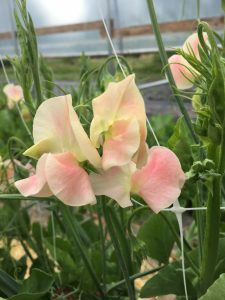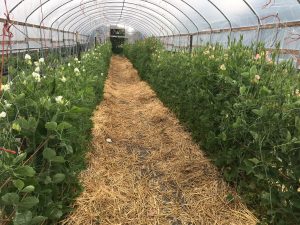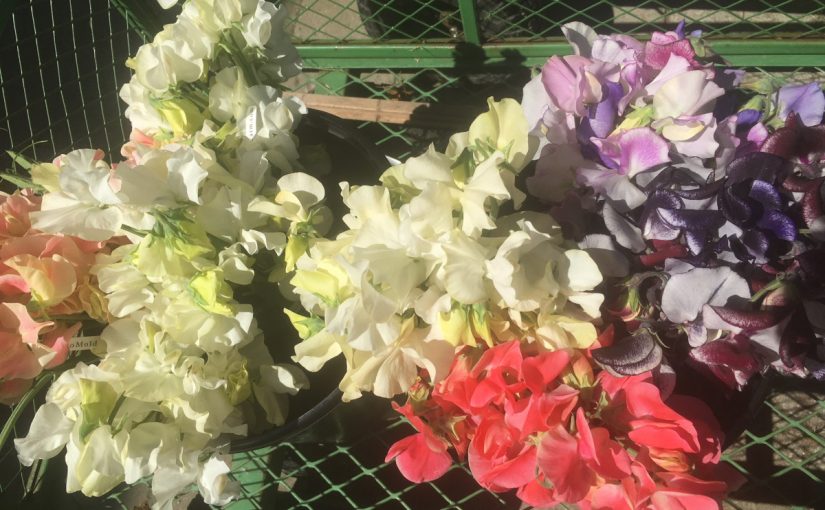
Photo: Allie Kuppenbender
Family: Fabaceae (also in this family: all peas and beans including sweet pea, snap pea, green beans, peanuts, chickpea, as well as lupine, wisteria, mimosa, cercis, kudzu, scotch broom, etc.)
Subfamily: Faboideae
Tribe: Vicieae
Genus: Lathyrus
Scientific Name: Lathyrus odoratus
Sweet Peas are native to Sicily, Cyprus, southern Italy, and the Aegean Islands, meaning they thrive in mediterranean climates. This means they often wilt and slow flower production if in a climate where summers are scorching hot. These fragrant blooms are a garden staple all over the world though, being cultivated from the UK to the US to Pakistan.
According to Old Farmer’s Almanac:
- Zone: 3-10
- Bloom Time: Summer to fall (climate dependent)
- Bloom Size: 1in
- Height/Spread: 3-6ft (climber so can get pretty out of control quickly without proper trellising)
- Soil: Loamy soil with alkaline/basic soil pH
- Site: Full sun with well draining soil. “Sweet peas are happiest with their heads in the sun and their roots deep in cool, moist soil. When possible, plant low-growing annuals in front of them to shade their roots (Old Farmer’s Almanac)
- Type: annual climber
- Seed Type: Dicotyledon
Harvest with at least two flowers in bloom on the stem. Cut stem as long as possible (follow as far back to main vine as possible. Especially later in the season, harvesting sweet peas (and tying them up for that matter) will require a ladder. In fact, the hoops pictured were built at that height to accommodate trellising sweet peas all the way to the ceiling.

Photo: Allie Kuppenbender
SOURCES:
Jello Mold Farm (Mount Vernon, WA)
Everyday Flowers (Stanwood, WA)
Sweet Peas: How to Plant, Grow, and Care for Sweet Peas, Old Farmer’s Almanac
Guide to Flowering Plant Families, Wendy B. Zomlefer
Plant Families: A Guide for Gardeners and Botanists, Ross Bayton and Simon Maughan
Specialty Cut Flowers; The Production of Annuals, Perennials, Bulbs, and Woody Plants for Fresh and Dried Cut Flowers, Allan M. Armitage and Judy M. Laushman
